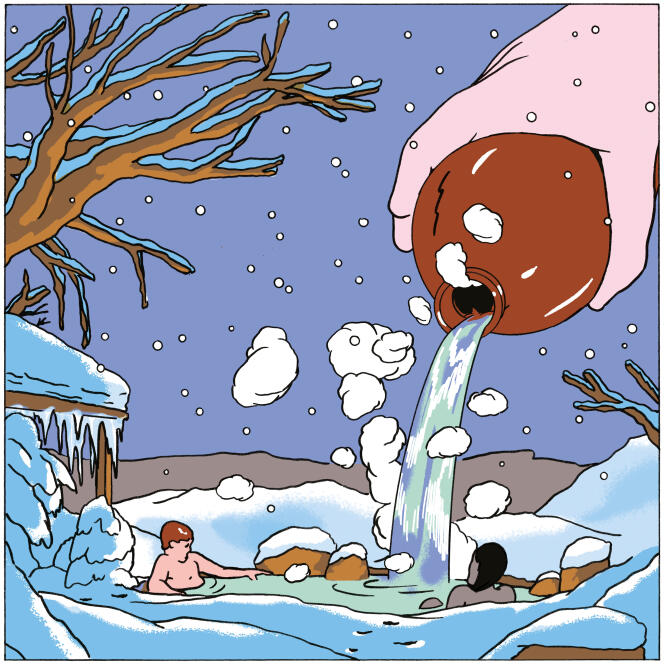


You're cold and think a drink might warm you up? You're both right and wrong. The ingestion of alcohol causes a rush of blood to the periphery of the body, which effectively gives a feeling of warmth and well-being. With a blanket over your legs and a heavy jacket over your shoulders, a good glass will help you to get into the spirit of hygge, a Danish word whose meaning is close to coziness, designating a feeling of relaxation in a warm, intimate atmosphere.
But drinking alcohol can actually lead to heat loss. It may slightly increase skin temperature, but not that of internal organs. Exposed to winter weather, the heat concentrated on the surface will disperse very quickly when it comes into contact with the cold, and body temperature will plummet. The moral: If you're reading this paper at the bottom of an avalanche or in an old mountain refuge, don't drink alcohol, as it promotes hypothermia. If the alcoholic beverage is heated, however, it will invigorate everything it touches: mouth, throat, stomach and even hands. Even your feet will be warmed, if that's how you hold your cup (successfully tested on a sofa).
There's no strict recipe for grog: The basic ingredients are rum and hot water. It takes its name from an English admiral, Edward Vernon (1684-1757), nicknamed "Old Grog" after his clothes made of grogram, a rough wool and silk fabric derived from the French gros-grain. He used to cut his sailors' rum with water to reduce their consumption. It was then customary to add lemon juice to combat scurvy. Today, especially for colds, honey is also added to soothe sore throats. Example of a classic preparation: Heat 12 cl of water, add 3 cl of white rum, the juice of half a lemon and one or two teaspoons of honey.
You can also top up the infusion with cinnamon and cloves. We could go on and on about the supposed anti-infectious properties of lemon, the anti-inflammatory properties of cloves, the antibacterial properties of cinnamon, the purported benefits of the perspiration produced by the beverage in eliminating toxins, or even the steam from the beverage in clearing mucous membranes. The fact remains that grog has never proved effective as a medicine. So, first and foremost, drink it for pleasure.
The flagship drink of Christmas markets, mulled wine can be absolutely delicious as well as rigorously undrinkable, depending on the preparation and choice of wine. The best I've had this winter (so far, anyway) was served at the counter of my climbing gym, Arkose, in Pantin (northeast of Paris). It was vigorously dosed with cinnamon and had just the right amount of sugar and orange. But its success was due to its base wine, which was very fruity, without acidity or tannins – which could have made the mouth water – and so light and delicious.
You have 50% of this article left to read. The rest is for subscribers only.
